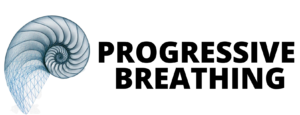The Positive Effects of Nasal Breathing on Chronic and Accumulative Stress
In our fast-paced, modern world, chronic and accumulative stress has become a pervasive issue, silently wreaking havoc on our health and well-being. While stress itself is a natural response designed to protect us in short bursts, prolonged exposure to it can negatively impact nearly every system in the body. The good news? A simple, powerful practice—nasal breathing—offers a natural and effective way to mitigate the harmful effects of stress and restore balance to both body and mind.
This article will delve into the science behind nasal breathing, how it alleviates chronic stress, and why incorporating it into your daily life can transform your health and well-being.
Understanding Chronic Stress
Stress activates the body’s sympathetic nervous system, initiating the “fight or flight” response. While helpful in emergencies, chronic activation due to ongoing pressures—such as work deadlines, financial worries, or emotional strains—keeps the body in a constant state of alert.
Over time, this prolonged state can lead to:
- Elevated cortisol levels (stress hormone)
- Impaired immune function
- Disrupted sleep patterns
- Increased risk of cardiovascular issues
- Digestive problems
- Mental health challenges, such as anxiety and depression
Stress also dysregulates the balance between the sympathetic nervous system (fight or flight) and the parasympathetic nervous system (rest and digest), making it harder to relax and recover.
Why Nasal Breathing is a Game-Changer
Nasal breathing is the practice of breathing through the nose rather than the mouth. This seemingly simple shift has profound effects on the body and mind, directly countering the harmful impacts of stress. Here’s how:
1. Activates the Parasympathetic Nervous System
Breathing through the nose naturally slows down the breath rate and encourages diaphragmatic (deep belly) breathing. This stimulates the vagus nerve, which plays a key role in activating the parasympathetic nervous system.
- Result: Reduced heart rate, lowered blood pressure, and a state of calm and relaxation.
2. Regulates Oxygen and Carbon Dioxide Balance
Nasal breathing optimizes the balance between oxygen intake and carbon dioxide retention. This balance is crucial for maintaining proper blood pH and ensuring efficient oxygen delivery to tissues and organs.
- Result: Enhanced energy, reduced fatigue, and improved mental clarity—all countering the effects of chronic stress.
3. Promotes Nitric Oxide Production
The nasal passages produce nitric oxide (NO), a molecule with powerful health benefits. Nitric oxide:
- Improves blood flow by dilating blood vessels
- Enhances oxygen transport throughout the body
- Supports immune function and cellular repair
These benefits contribute to stress resilience, helping the body recover from the wear and tear caused by chronic stress.
4. Improves Respiratory Efficiency
Breathing through the nose filters, warms, and humidifies the air we inhale, ensuring optimal respiratory function. Mouth breathing, on the other hand, can lead to shallow and inefficient breaths, which exacerbate feelings of stress and anxiety.
- Result: A calmer, more grounded state of being.
The Psychological Benefits of Nasal Breathing
Stress is not just physical; it profoundly affects the mind. Nasal breathing helps regulate the body’s response to stress, creating a positive feedback loop that enhances mental health.
1. Reduces Anxiety
When the breath slows and deepens through nasal breathing, the body interprets this as a signal of safety. This calms the amygdala, the brain’s fear center, reducing feelings of anxiety.
2. Enhances Focus and Emotional Resilience
Chronic stress can leave the mind scattered and overwhelmed. Nasal breathing increases oxygen flow to the brain, improving focus, concentration, and decision-making. Over time, regular practice enhances emotional resilience, helping you respond to challenges with greater ease.
3. Supports Mindfulness and Presence
Nasal breathing naturally anchors you in the present moment. This connection to the “here and now” fosters mindfulness, which has been shown to reduce stress and promote well-being.
Long-Term Effects of Nasal Breathing on Chronic Stress
Incorporating nasal breathing as a regular practice can lead to profound long-term benefits, such as:
- Reduced risk of stress-related illnesses: Conditions like hypertension, heart disease, and autoimmune disorders become less likely as the body experiences lower chronic stress levels.
- Improved sleep quality: Nasal breathing supports deeper, more restorative sleep by promoting diaphragmatic breathing and reducing sleep-disordered breathing issues, like snoring or sleep apnea.
- Balanced hormonal health: Chronic stress can wreak havoc on the endocrine system, but regular nasal breathing helps regulate cortisol and other stress-related hormones.
- Increased energy and vitality: With more efficient oxygen delivery and reduced tension, the body feels more energized and less fatigued.
Incorporating Nasal Breathing into Daily Life
Making nasal breathing a part of your routine doesn’t require major lifestyle changes. Here are a few simple ways to get started:
1. Mindful Breathing Practice
Set aside 5–10 minutes daily to focus solely on your breath. Sit comfortably, close your mouth, and take slow, deep breaths in and out through your nose. Observe how your body responds as you relax.
2. Use Nasal Breathing During Physical Activity
While exercising, try to maintain nasal breathing as much as possible. This enhances oxygen efficiency and keeps your stress response in check, even during strenuous activity.
3. Practice Breath Retention Exercises
Incorporate brief breath holds after exhaling. This trains your body to tolerate higher levels of carbon dioxide, which enhances oxygen delivery and reduces over-breathing—a common response to stress.
4. Address Nasal Blockages
If nasal congestion prevents effective breathing, consult with a healthcare provider to address underlying issues like allergies or structural imbalances.
Final Thoughts on Chronic & Accumulative Stress
Chronic and accumulative stress may be an inevitable part of modern life, but its effects don’t have to dominate your health and well-being. By harnessing the power of nasal breathing, you can restore balance to your body, calm your mind, and build resilience to stress over time.
At Progressive Breathing, we’re passionate about guiding individuals toward practices that enhance their health and vitality. Whether through one-on-one coaching, group workshops, or online resources, we’re here to help you unlock the profound benefits of nasal breathing.
Ready to take a deep breath and transform your life? Visit us at Progressive Breathing to learn more about how our programs can support your journey to stress relief and optimal well-being.
Breathing is life—let’s make it work for you.
Combine Progressive Fitness with Nasal Breathing for Optimal Health Benefits.



